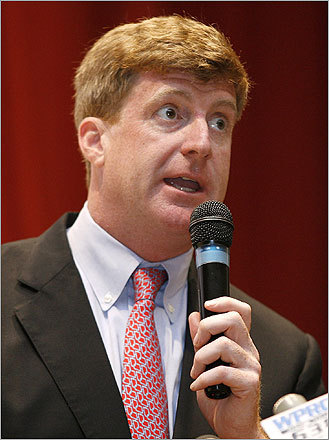The author on how being a Communications student prepared him for the battle that was to come.
Mood music for this Post: “The Hazards of Love Part 1” by The Decemberists:
[youtube=http://www.youtube.com/watch?v=Fp_MVc3abXU&hl=en_US&fs=1&]
I wasn’t going to blog today because it’s so damn nice out. But then I realized I could do this from the back deck, so here goes…
A new reader — a soon-to-be recipient of a Salem State College degree in communications — stumbled upon the blog after we met the other night at a portfolio-resume review I was asked to participate in.
I’ll keep her name anonymous but share a question she asked me by e-mail yesterday. It’s a good question; one I never really thought about before:
I looked up your blog and read some of your entries about addiction and mental illness. Currently I work at Baldpate Hospital in Georgetown, a dual diagnosis facility. I work at the hospital as a mental health assistant, and I love my job. I get the chance to speak with the patients who want the help, and offer them insight when they are willing to hear it. I also saw that you worked at The Eagle-Tribune, where I recently completed my internship as a copy desk intern.
I was interested in how you take your own life experience and apply it to the communications field. My current job and where I worked prior, at a residential house for teenagers, has given me insight in many areas, and it would be ideal for me to make a connection with my major. Any advice that you have would be great.
At first I didn’t know how to answer this. Then I realized it’s not so hard a question after all.
My career in journalism has been all about using communication skills I picked up in college. You need the skills to simplify complex topics for your readers. When you need to go on the radio or TV to talk about something you’re covering, communication skills can make the difference between a prime performance or making an ass of yourself.
I’m doing a lot more public speaking these days, whether it’s for the security presentations I frequently give or qualifying at an OA meeting or lectoring at church. All the things I learned in college are put to use, whether it’s using a PowerPoint slide deck to sharpen a security presentation or using the right hand gestures to highlight certain points when I’m speaking at an OA meeting.
You could say I put the communication skills to use in this blog. The communications major in me came up with the idea to attach mood music to most of my posts. The journalism skills are used to help me wring out as much detail on the subject as I can muster for each post. In the end, it’s the attention to detail you’re able to put in your writing that makes it work, not the ability for word play.
But you, my friend, have a unique opportunity to fuse the skills you just spent four years learning with the work you do in the mental health field.
You’ve spent many hours with these people. You’ve seen their pain up close. You know the circumstances around their illness and you’ve likely been trained on the various tools the mentally ill must be taught to function in society.
Therefore, you have a lot of stories to tell that can go far in breaking the stigma that keeps people from getting help that’s easily available.
My suggestion: Find a way to tell those stories. Maybe it’ll be for a medical-based publication. Maybe it can be done as a communications specialist for a hospital or independent organization.
Maybe it’ll be for the organization you already work for.
For those who struggle with OCD, there’s an organization with much to offer called The International OCD Foundation. I’m almost ashamed to admit that I only learned about these guys in December. Thanks to Stephanie Chelf for flagging it! Stephanie, by the way, is a former Eagle-Tribune reporter who handles PR for this and other groups.
The most important advice I can offer is this:
Keep doing the one-on-one work you do with sufferers.
You need to keep yourself in the game so you’ll continue to know where these people are coming from. Just like I spend a lot of time with hackers and other cybersecurity specialists so I’ll continue to understand the audience I’m writing for.
The fact that you are a mental health assistant qualifies you to share stories with those who are willing.
I think you’re already on the path you need to be on.
And for someone who is just about to graduate, that’s pretty damn good.










